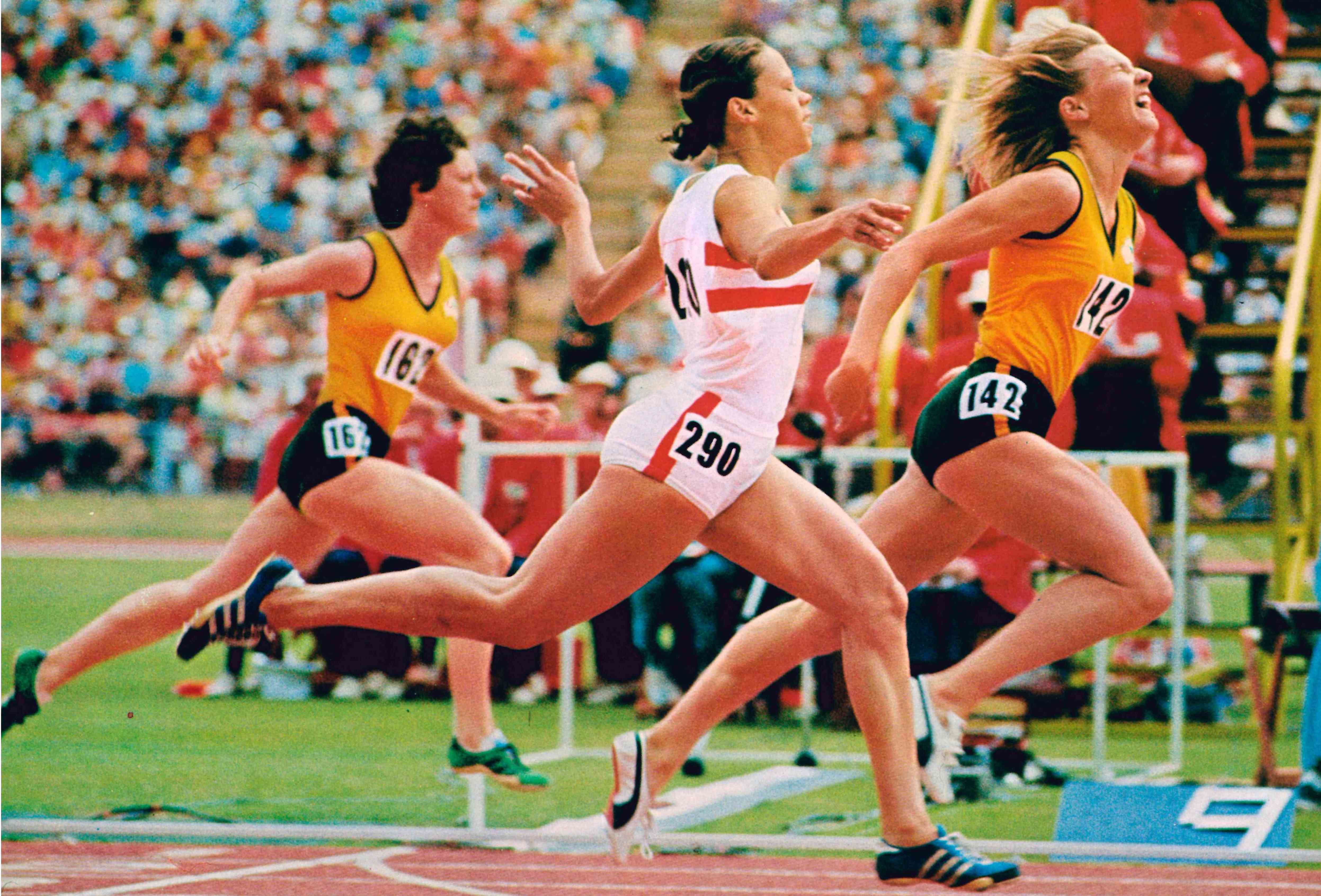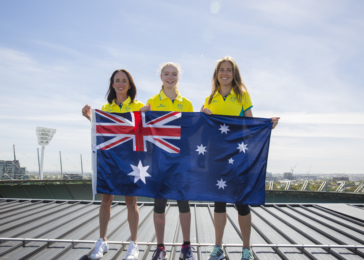
IMAGE|| Sprinter Raelene Boyle winning the 100m title
Christchurch convincingly defeated Melbourne for the right to host the 1974 British Commonwealth Games after many years of trying. They had lost the New Zealand nomination to host the 1950 Games (awarded to Auckland) and a narrow loss to Edinburgh to host the 1970 Games. With a population of only 250,000 at the time, Christchurch, the city of churches and gardens was more like a large town. But the Munich Olympic Games terrorism, in 1972, increased the importance of security, however the Games went off without a hitch.
By David Tarbotton
The 15-day Queen’s Baton relay concluded on January 24 when Kiwi distance runner, Sylvia Potts arrived in the stadium to hand the baton to Prince Philip in front of the 35,000 spectators and athletes from 38 nations.
Competing in his third and final Games, swimmer Mike Wenden was given the honour of the opening ceremony Australian flag bearer. The Games featured one of the greatest 1500m events in championships history, the equal of the famous miracle mile at the 1954 Empire Games when Roger Bannister raced John Landy. In Christchurch, Tanzanian Filbert Bayi defeated New Zealand’s John Walker in a world record time of 3:32.16 – a performance which 44 years later remains as the equal oldest Commonwealth Games record. Walker also broke the world record and in fourth, kiwi Rod Dixon ran the fifth fastest time in the history and missed the podium. In fifth, Aussie Graham Crouch broke Herb Elliott’s national record. Sprinter Raelene Boyle defended her 100m and 200m titles, won four years earlier in Edinburgh. She also helped the women’s 4x100m relay to gold an achievement equalled by the Australian men. In her sixth race in five days Charlene Rendina won gold in the 800m after going undefeated through the rounds. Two years later she set the still current national record of 1:59.0.
The 5000 seat QEII Park hosted the swimming and diving events. Australia’s Don Wagstaff defended his two diving titles in the 3 metre and 10 metre events. It was also the third consecutive medal for Wagstaff in both events. Australia dominated the swimming events. The won every men’s freestyle event, the backstroke double and a butterfly gold. In the women they won all the sprint freestyle events. Mike Wenden won his third consecutive 100m freestyle title. In the other freestyle events, Stephen Badger won the 200m, John Kulasalu the 400m and Steve Holland the 1500m. Sonya Gray won the 100m and 200m freestyle double, while Jenny Turrall won the 400m.
In cycling, Australia won two gold on the bitumen outdoor velodrome. Dick Paris won the 1000m time trial, defeating team mate John Nicholson, who would later win the 1000m individual sprint. On the 11km road cycling circuit Clyde Sefton won the 183km road race.
Australia won two silver medals in lawn bowls, with Clive White claimed the singles, while Bob King, Errol Bungey, Errol Stewart and Keith Poole combined to finish second to New Zealand in the fours.
Yvonne Gowland, 30, from Adelaide, made history by winning the women’s first shooting gold medal ever awarded at the Commonwealth Games. Shooting was introduced to the Games in 1966 and was making its second appearance in Christchurch where the first women’s event, the small-bore rifle, was introduced to the program.
Held in the James Hay Theatre, Australia and England were the two leading nations in weightlifting with three gold each. Two legends of Australian Commonwealth Games weightlifting were in action. George Vasiliades and Nick Ciancio, gold medallists in Edinburgh four years earlier, both moved up weight divisions and again won gold. Vasiliades stepped up two categories from flyweight to featherweight, while Ciancio had moved up from light heavyweight to middle heavyweight. Australia’s third gold medallist was NSW’s Michael Adams in the bantamweight division.
In the Town Hall, venue for the wrestling, Australia won four medals, highlighted by Walter Koenig’s silver in the light flyweight division.
During the Games, it was decided to delete the word ‘British’ from the British Commonwealth Games and from 1978 they would be known as the Commonwealth Games.


